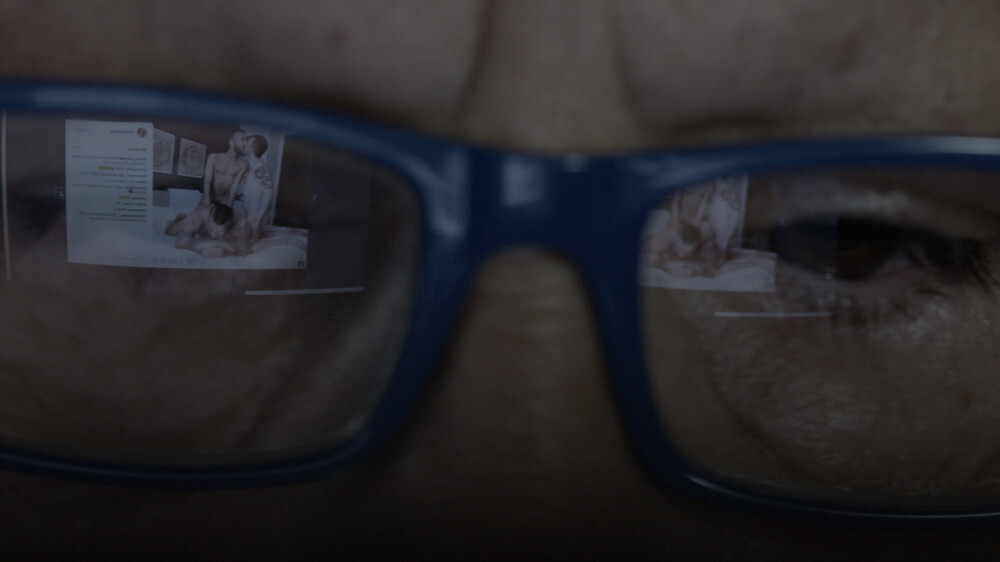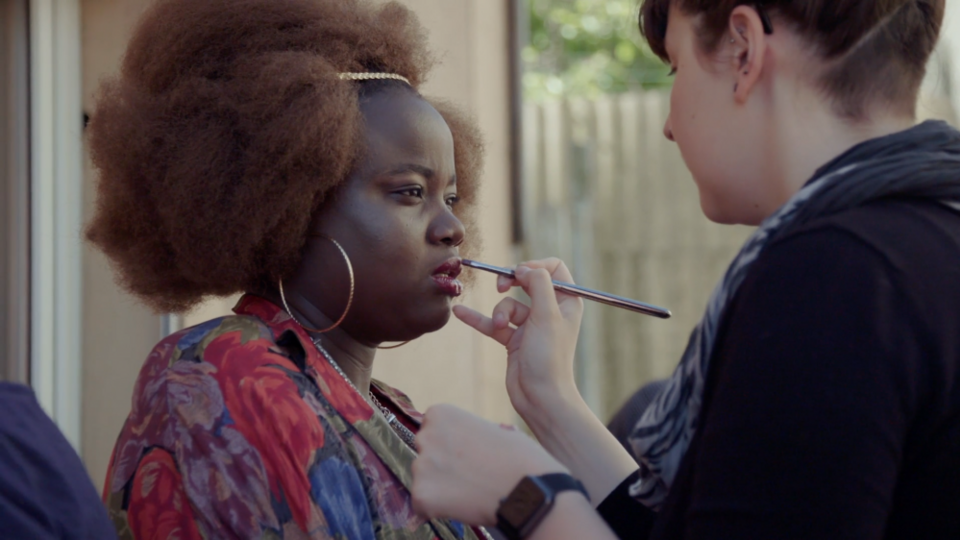I like to find other ways to tell a story
Life can unsettle us in many ways, but as hard as it can get, we still need to find a way to deal with new circumstances. Portuguese director Jorge Pelicano shows us a lenient depiction of a mother who deals with her son’s homosexuality and a career as a pornstar in Until Porn Do Us Apart.
First of all, I’m not interested in reality. The reality is the starting point to make a documentary, to make cinema. Second, a huge part of the film was shot inside the mother’s house. I researched her daily routines and found out they were mostly the same every day. So, I decided to prepare the set and the camera in those places and decided to wait for the mother. Also, I decided not to use movements of the camera because she stayed static for many hours in front of the computer trying to search her son on Facebook.
Are you concerned about people who could doubt or even attack your film or its message because of this style of documentary filmmaking?
When you make a documentary, you must be faithful to the story and put in your filmmaker perspective. I’m always concerned about every film I make this way. I like to risk, to challenge myself and to find other ways to tell a story. I defend several views of documentary filmmaking, because we make art with real people, real places and stories.
Certain level of staging requires a screenplay, that's why I suppose there was one for your film. What was the process of making the screenplay like?
Other films I did, the narrative structure was found in the editing room. This was my first documentary with a screenplay. The intention was controlling and shaping the story during the shooting process. For me, the past of the relationship between the mother and her son was relevant to understand the story. And the “past” was in the Facebook messages that they’ve been exchanging since 2013. So, I asked the mother to read several messages that she wrote to her son. In those messages, there you can see the difficulties she passed to accept her son as a gay porn actor. On the other hand, since the beginning I intended to cross the past with the present. And for me it was important to schedule the events before shooting, and that’s why you can feel the screenplay in the film. It was a new and challenging way to build the story.
Halfway through the film, it seems like we're about to follow Sydney's, the son’s perspective of the story. But soon enough, it's his mother who takes over again. What did make you give priority to the mother's part of the story?
This is a film about parents’ expectations and how to deal with children’s choices. When you raise a son, you always expect good things for him when he grows up: to have values, get a degree, find a job, get married and have children. When one of these things doesn’t happen, or if your son decides to be a gay porn actor, you never know how to deal with it. That’s the reason I decided – from the beginning – to explore the mother’s perspective. This was not her choice but her son’s, so it was more difficult for the mother and that was the reason why I stayed with her perspective. It was also important not to stay too much with her son, Sydney. The audience must feel the distance from him, as it happened in reality. His mother was always watching him through the internet but was never with him physically. That’s the reason I avoided to balance the film on both sides.
Documentary filmmaker Jorge Pelicano (1977) explores subjects related to modernity and the traditional way of life in Portugal. In Ainda Há Pastores? (2006), he told the story of shepherd in the mountains of Portugal, while Pare, Escute, Olhe (2009) – which was an audience hit in Portugal – looked at the closing of a historic railway line in the country’s north.



